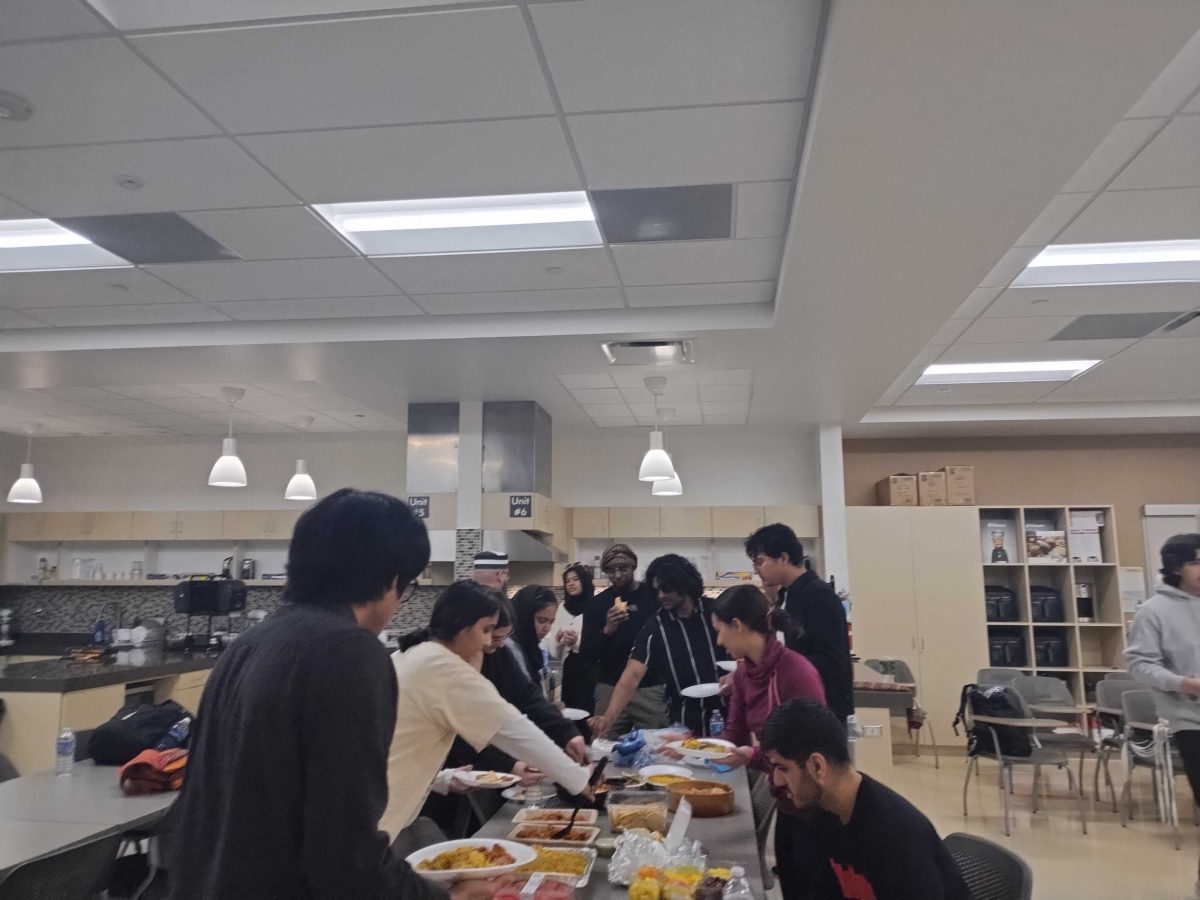On March 28, the Muslim Student Association at Mt. SAC held a gathering to eat for iftar.
This year’s Ramadan is from March 10, 2024 to April 9, 2024. Every year it falls several days closer on the Gregorian calendar. This will make 2025 Ramadan likely to fall between March 1, to March 30, 2025.
Ramadan occurs on the ninth month of the Islamic lunar calendar and is observed by Muslims worldwide as a month of fasting, prayer, reflection and community. During daylight hours, Muslims abstain from food, drink, smoking and other physical needs and focus instead on spiritual growth, self-discipline and charitable acts.
The fast is broken each evening with a meal called iftar. Each day of Ramadan is sandwiched between two practices called suhoor, in which Muslims eat before sunrise, and iftar, in which Muslims eat after sunset. It is not uncommon for practitioners to miss suhoor and fast until iftar.
Ramadan’s fastings are in keeping with one of the five pillars of Islam known as, Sawm.
A majority of Muslims across the world celebrate Ramadan. According to a Pew Research Survey, 93% of Muslims said they fasted, making it the most participated practice in Islam.
Certain scholars such as Ibn Qudamah have said that there can be individuals who can be exempt from Ramadan such as the elderly, the ill, women during pregnancy and women who are breastfeeding.
Ramadan can be confusing to those unaware.
For instance, Ramadan is not celebrated but rather observed. It is a period used for spiritual connection, self-reflecting, exhibiting self-discipline and devotion to Allah and Islamic teachings. Oftentimes, observers will increase prayer, recitation of the Quran and charitable giving as expression to their faith and devotion.
The MSA shared common misconceptions they heard surrounding the observance. They said some people thought they fasted the whole month nonstop, some people thought it was only two weeks and the biggest being shared by multiple members is that it is torturous.
This Ramadan, the MSA held a gathering to observe Iftar together on March 28.
The club members shared how the MSA brought them together to celebrate their religion as a community.
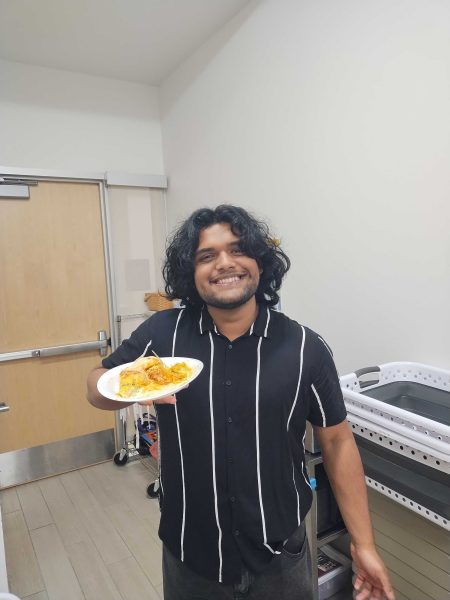
MSA President Adeeb Chowdry, 19, speaks on how he has gained friends within the MSA, and shared that the main goal of the club is to bring people together.
“Ummah, our whole goal of the MSA is to grow a Muslim community,” Chowdry said.
Like Chowdry, the rest of the MSA members shared the same sentiment of having made friends and a desire to community building.
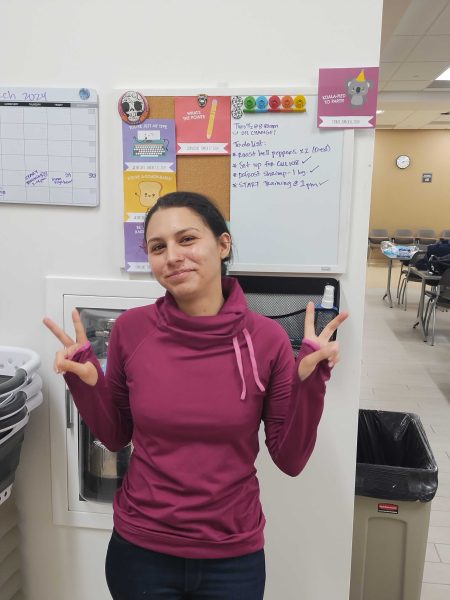
MSA Secretary Mary Lugo, 19, commented on how hard it is to find a group you have a lot in common with. She spoke about how this event was for everyone as anyone was welcome to attend. She also emphasized how the event offered a community to Muslims around campus.
“We tend to blend in, we don’t want to stand out,” Lugo said.

MSA Interclub Council Representative Sharif Qadir, 21, speaks to what he’s gained from the MSA: patience, communication skills and friends. He keeps the association’s mission goal of building a community at the forefront.
“To build a community where Muslims and non-Muslims can come, and enjoy time together” Qadir said.
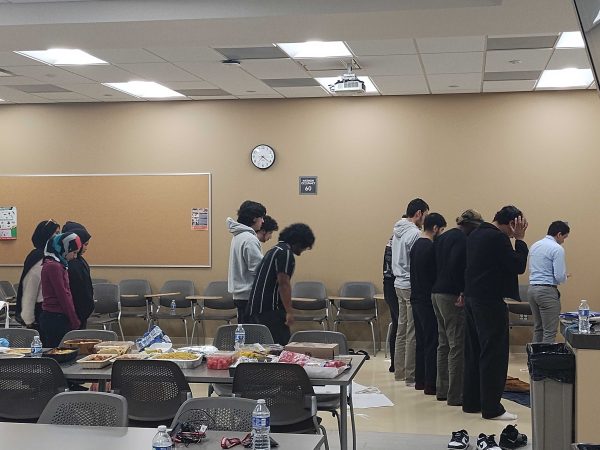
In accordance to Islam, prayers must face the holy site of the Kaaba, which is located in Mecca, Saudi Arabia.
After the prayer, the MSA and other student attendants engage in iftar.
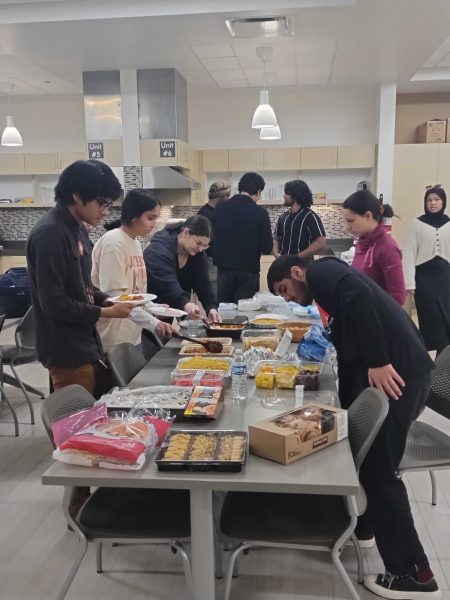
Ramadan with the MSA exemplifies a long history of observances bringing people together. The MSA stands as yet another example of Mt. SAC’s open communities.


